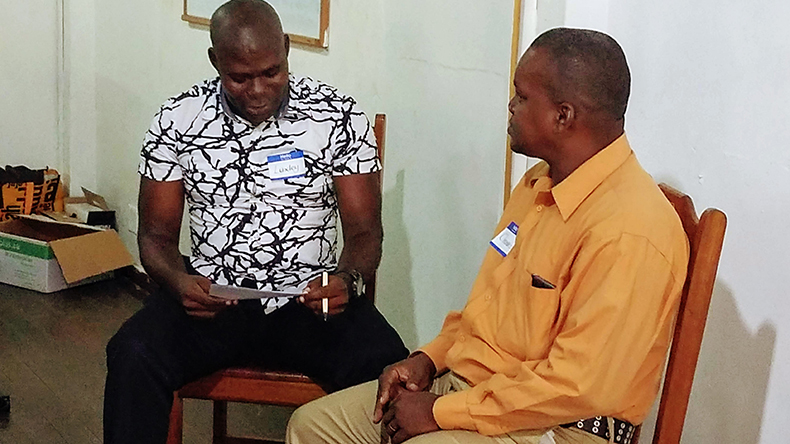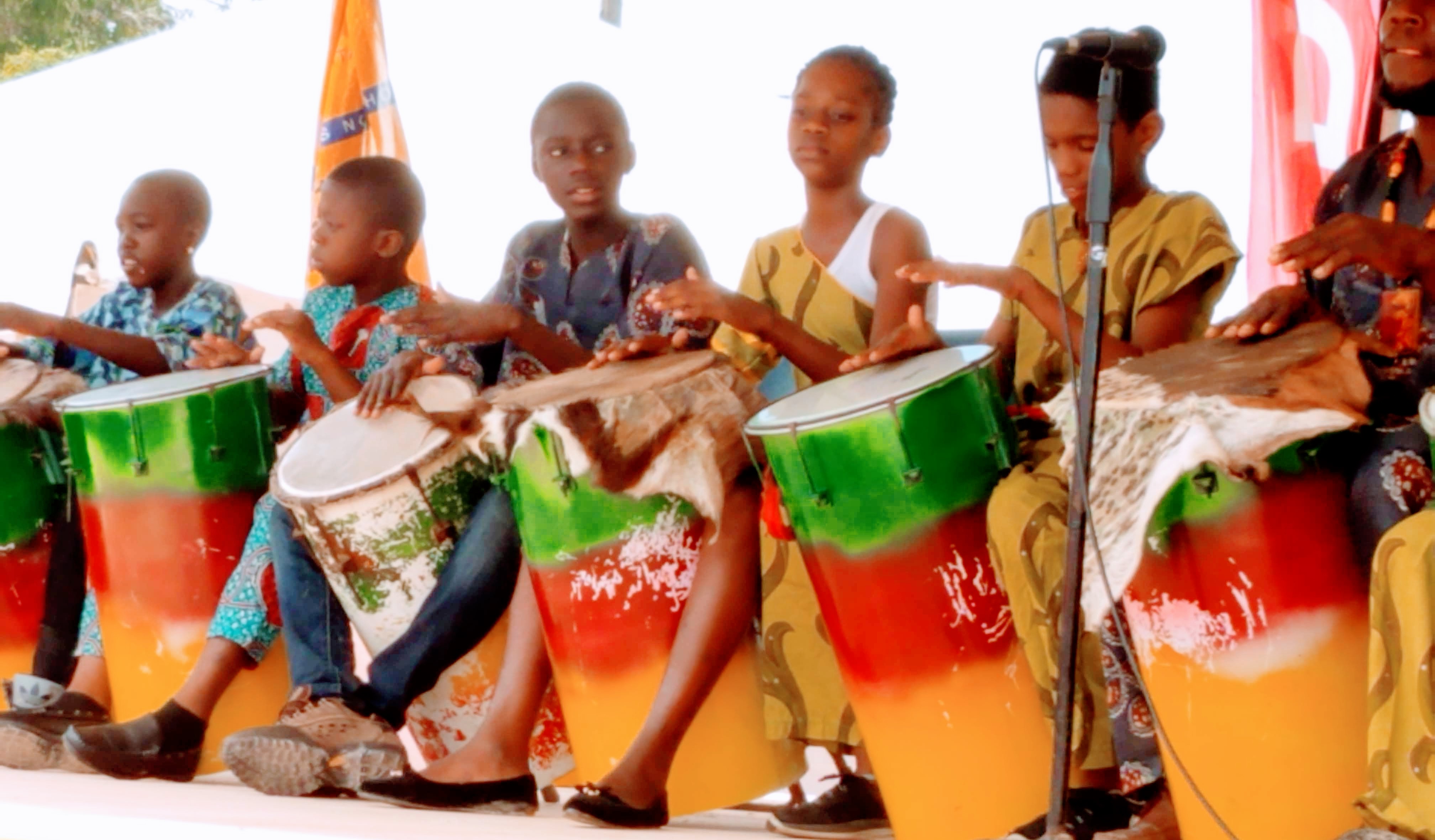Guyana Service Learning & Cultural Immersion Program Addresses Suicide Prevention

Workshop attendees in Guyana participate in an exercise where they role played suicide risk assessments.
Suicide is a leading cause of death in Guyana and represents a critical public health crisis. Guyana, one of the least populated countries in South America, in years past has had the unfortunate distinction of having the world’s highest incidence of suicide — 44.2 suicides per 100,000 deaths, four times the worldwide average of 11.4 per 100,000 according to a 2014 study by the World Health Organization.
In 2015, Guyana became one of only 28 countries to develop a suicide prevention plan (The National Suicide Prevention Plan 2015-2020) which has identified risk factors and prevention strategies, and Guyana's suicide rate has dropped by 32 percent over the past four years, according to the most recent WHO statistics released in April 2017.
“While this improvement is encouraging, the suicide rate in Guyana remains the third highest in the world,” said Dr. Natalie A. Cort, assistant professor of Clinical Psychology and Core Faculty in the Center for Multicultural and Global Mental Health and the Concentration on Children and Families of Adversity and Resilience. “For continued reduction in the incidence rate, it is imperative that innovative multi-sectoral approaches be developed and implemented.”
Cort, who is Guyanese by birth, developed the Guyana Service Learning & Cultural Immersion Program under the auspices of WJC’s Center for Multicultural & Global Mental Health (CMGMH) in 2015. The program is specifically designed to increase William James College students’ cultural fluency and global competency by exploring the multi-ethnic and multi-cultural identities in Guyana. Through the program, students take part in classes and participate in a 10-day in-country service trip through which they learn about Guyana's rich history, cultural belief systems and practices, social services, sociopolitical dynamics, and religious traditions.
Forged in a shared commitment to innovatively addressing Guyana’s mental health challenges, William James College recently partnered with the American University of Peace Studies, Inc. (AUOPS) in Guyana to advance efforts supporting the inherent resilience of the Guyanese people. As a function of the partnership, Cort travelled to Guyana to conduct a two-day suicide prevention gatekeeper training workshop in July. Forty-four gatekeepers attended, including representatives from the Ministry of the Presidency, law enforcement officers, educators, mental health providers, and psychology undergraduate students.
The objectives of the workshop, titled “Understanding & Preventing Suicide in Guyana” were to increase knowledge about suicide, depression, and trauma, address beliefs and attitudes about suicide and mental illness, reduce reluctance to intervene and stigma of mental illness, and increase self-efficacy and skills to intervene with a person at risk of suicide.
“This highly interactive and participatory workshop involved mini-lectures, facilitated group discussions, role-plays, and expressive arts activities,” Cort said. “Additionally, attendees were trained in the evidence-based Columbia Protocol — also known as the Columbia Suicide Severity Rating Scale (C‐SSRS) and related suicide safety planning.”
The C-SSRS, she explained, is a measure used to evaluate and determine individuals’ level of risk for suicide, by assessing the severity of suicidal ideation, the intensity of ideation, suicidal behavior and suicide method lethality. It can also be used to guide appropriate therapeutic intervention and to facilitate safety monitoring and planning.
Additionally, as a component of the institutional partnership, Cort conducted a program evaluation pilot study to examine the mental health needs of the Guyanese people and to evaluate the preliminary benefits of the Suicide Prevention Gatekeeper Training workshop. She noted that the success of the workshop and the study was achieved with significant contributions by faculty member Dr. Sunny Dutra and student Sohenga Depestre, and Guyanese coordinators Collis Spencer-Drakes (AUOPS) and Marsha Singh.
While in Guyana, Cort also facilitated a forum with Guyanese youth titled “Let’s Talk: Towards Improving Our Mental Wellbeing,” which was hosted at Trinity Methodist Church by Gillian Phillips of the Methodist Church in the Caribbean and the Americas: Guyana District and was attended by 20 youth leaders. The objectives were to increase their understanding of mental health and to brainstorm ideas about ways to increase their peers’ awareness of ways to combat suicide and other mental health challenges.
Additionally, she attended a number of cultural celebration events, including the country’s Emancipation Day festivities, hosted by the African Cultural and Development Organization. The cultural activities, attended by Guyanese of all races dressed in beautifully designed African-themed clothing, includes African drumming, dancing, foods, arts and craft, and literature.

Cort said she feels blessed to have the opportunity to return and work in Guyana. “I feel grateful to be provided such an amazing opportunity by William James College to be able to return to my homeland to support my fellow Guyanese by utilizing skills developed is the United States,” she said. “Guyana provided me with an excellent educational foundation that informed my academic success in the US. It also provided me with a strong sense of self and racial confidence, which buffered me against ubiquitous and potentially damaging racial stereotypes about people of color here in the US. So, my current career and professional accomplishments have their roots back home in Guyana.”
- Tags:
- In the Community
Topics/Tags
Follow William James College
Media Contact
- Katie O'Hare
- Senior Director of Marketing
- katie_ohare@williamjames.edu
- 617-564-9389
